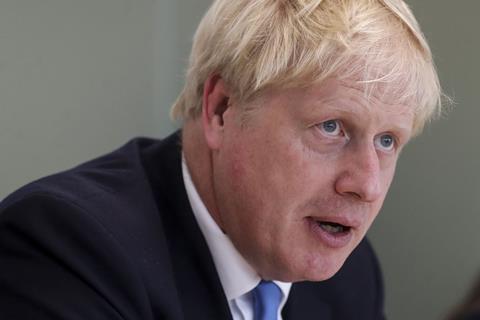Several key pieces of justice-related legislation could be lost if the government pushes ahead with plans to prorogue parliament in the run-up to the Queen’s speech.
Prime minister Boris Johnson confirmed today that he has spoken to the Queen to request an end to the current parliamentary session, the longest in modern history, in the second sitting week in September. A second session would begin with a Queen’s speech on 14 October.
Prorogation would halt all parliamentary business, with bills yet to be given royal assent likely to fall away unless specifically carried over to the next session.
Several such bills are before parliament.
The Domestic Abuse Bill, which prohibits cross-examination in person in family proceedings in certain circumstances, was introduced to the Commons in July but has yet to have a second reading.
Similar measures were also included in the Prisons and Courts Bill, which was itself killed off in 2017 when former prime minister Theresa May called a snap general election.

The defunct bill also included measures to enable courts reform as part of the modernisation overhaul. Those measures have since been split into smaller pieces of legislation enacted one at a time, with the latest being the Courts and Tribunals (Online Procedure) Bill. As this has progressed to the report stage, it is possible that parliamentary time may be found to turn it into law.
Family lawyers will also be anxiously waiting to see if the Divorce, Dissolution and Separation Bill can be enacted before parliament is shut down. This legislation, also at report stage, would finally create a ‘no fault’ divorce in England and Wales.
In his letter to MPs today, Johnson states: ‘Decisions will need to be taken about carrying over some of the bills currently before the house, and we will look to work constructively with the opposition on this front.
‘If agreement cannot be reached we will look to reintroduce the bills in the next session, and details on this will be set out in the Queen’s speech.’
Several MPs have indicated they will oppose Johnson’s plans. Former attorney general Dominic Grieve said today he would vote to bring down a Conservative government if the prime minister persists with his plan, while former justice secretary David Gauke called prorogation a ‘dangerous precedent’.

















![David Lester (senior partner at Blythe Liggins), Darryl Barnes, Jagdeep Sandher (head of dispute resolution at Blythe Liggins)[4]](https://d1d8vslyhr7rdg.cloudfront.net/Pictures/274x183/4/2/8/116428_davidlesterseniorpartneratblytheligginsdarrylbarnesjagdeepsandherheadofdisputeresolutionatblytheliggins4_981603_crop.jpg)






96 Readers' comments